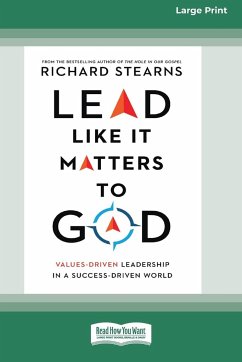
So You Want to Be a Scientist?
Versandkostenfrei!
Versandfertig in 1-2 Wochen
41,99 €
inkl. MwSt.
Weitere Ausgaben:

PAYBACK Punkte
21 °P sammeln!
So You Want to Be a Scientist offers readers a glimpse into the "job" of being a research scientist. It is not intended to be a step-by-step "how to" book. Rather, it is intended to fill a hole in the education of most would-be scientists, addressing explicitly many issues that are rarely addressed directly in training programs. Starting with thoughts about how to decide whether you'd want to pursue such a career (and if so, how to get started), the book works through someof the obvious topics relevant to a research profession (e.g. how to write a paper, give a talk, construct a grant proposal...
So You Want to Be a Scientist offers readers a glimpse into the "job" of being a research scientist. It is not intended to be a step-by-step "how to" book. Rather, it is intended to fill a hole in the education of most would-be scientists, addressing explicitly many issues that are rarely addressed directly in training programs. Starting with thoughts about how to decide whether you'd want to pursue such a career (and if so, how to get started), the book works through some
of the obvious topics relevant to a research profession (e.g. how to write a paper, give a talk, construct a grant proposal). It also examines less obvious, but equally important topics that are generally incorporated into a research education only by trial and error-e.g., "thinking" like a scientist,
negotiating scientific politics, dealing with research ethics, and understanding social interactions. Chapters on the challenges and rewards of a career in research science include reflections on science as art and on the social responsibilities of scientists in the modern world. The book is not designed to convince the reader one way or another about a career as a research scientist. Rather, it provides information and insights, based on the author's long career in the laboratory and his rich
experience with trainees, that will help the young scientist make better decisions and choices. It may also be useful to teachers, counselors, and parents for a realistic look at the demands and requirements for success in a research career.
of the obvious topics relevant to a research profession (e.g. how to write a paper, give a talk, construct a grant proposal). It also examines less obvious, but equally important topics that are generally incorporated into a research education only by trial and error-e.g., "thinking" like a scientist,
negotiating scientific politics, dealing with research ethics, and understanding social interactions. Chapters on the challenges and rewards of a career in research science include reflections on science as art and on the social responsibilities of scientists in the modern world. The book is not designed to convince the reader one way or another about a career as a research scientist. Rather, it provides information and insights, based on the author's long career in the laboratory and his rich
experience with trainees, that will help the young scientist make better decisions and choices. It may also be useful to teachers, counselors, and parents for a realistic look at the demands and requirements for success in a research career.













